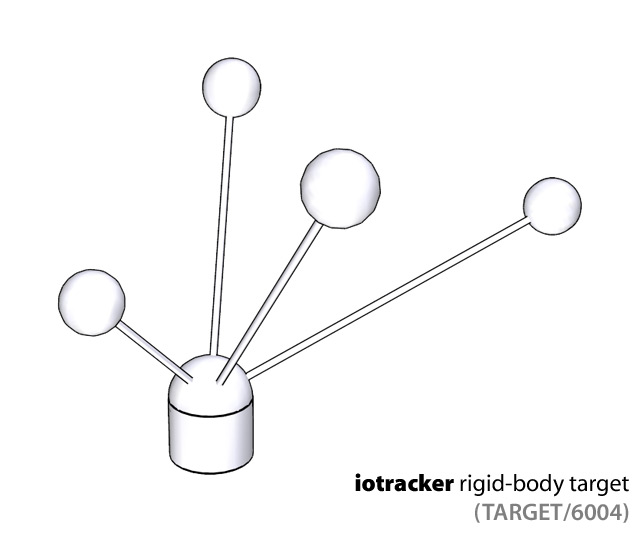|
|
LITR 5439 Literary & Historical Utopias Model Assignments
|
|
![]()
Katie Parnian
The Perfect Utopia: a Contradiction in Terms
Throughout the ages, human cultures have entertained the idea of a utopian society as a plausible cure for the shortcomings of existing social and political structures (objective 3i). Defined as “Any real or imaginary society, place, state, etc. considered to be perfect or ideal” (dictionary.com) utopias have surfaced in many forms, including the legendary city of Atlantis, the pursuit of establishing the New Jerusalem during the Crusades, the concept of The United States as entertained by our forefathers, and even religious ideals, such as the pursuit and attainment of Heaven (objective 4c). Just as the western concept of Heaven reflects our cultural values, such as how streets paved with gold is reflective of the West’s preoccupation with gold and wealth, I assumed, prior to taking this course, that the utopian ideals discussed in the curriculum would appeal to anyone’s idea of a utopia and was curious to see how such ideals could be achieved. However, a more realistic and true definition of a utopia can be found within the Latin roots of the word itself, which simply means “no place.” The justification for such an ambiguous definition of utopia lies in two primary conclusions, the first being the perspective that utopias are developed to serve as a remedy to the particular culture and age’s social, religious, political and economic needs. Secondly, utopian ideals are not achievable for the same reasons Western notions of idealized notions of love, the “and they lived happily ever after” notion of marriage are not sustainable: it is taken for granted that others are either intrinsically or extrinsically motivated to achieve the same ideals at the same levels. The inevitable failure to sustain this ideal through the values and ambitions of each individual inevitably leads to a failed utopia, or dystopia, such as that revealed in Ayn Rand’s Anthem.
To expand upon the first premise for fault within the utopian ideal, I would like to draw a comparison between my own idealized utopia and that portrayed in feminist utopian novel, Herland, by Charlotte Perkins Gilman. I, like many middle-class Caucasian women in the southern United States, was brought up with the notion that success after graduation from high school lay in graduating from college, getting married to a successful man (ideally wealthy), moving into a white picket-fenced home in the suburbs and driving around in a Suburban filled with lively children(objective 3i). While this vision may appear to convey success to some, it would definitely not support the advocacy for women’s independence from male support and necessity in the family unit as portrayed in Herland. Gilman designed this feminist utopia to illustrate and empower the idea behind women’s efficiency and capability free from male interference or support. Her version of an all-female utopian society served to suit her plight for female equality and self-esteem, and it would not equate with the same version of utopia that I had entertained. This unequivocal comparison lends credence to the fact that one person’s utopia could easily be another’s dystopia in that the societal needs and desires are not similarly matched to every ideal system of perfection.
In reference to Mary K. Boudreaux’s midterm, I agree that the authors of utopian novels are often heavily influenced by millennial events in history as well as shifts in economic trends, sociology, and education (Boudreaux 2009) Objective 1A. For instance, in Ayn Rand’s Anthem, a dramatic form of religion and communism are intertwined to create a state of absolute equality that takes precedence over every aspect of individual thought and action. The primary literary convention present concerning the plot is the collective vs. the individual. In this communal dystopia, religious and political propaganda censor the people’s knowledge of and interest in their own history. They are prohibited from expressing any sort of individual identity or interest by consistently referring to themselves as “we”. They are also prohibited from exploring and seeking any sort of self-knowledge, which the main characters covet and discover electricity by entertaining their own curiosities. Rightfully named after the Greek god responsible for bringing fire, or in this case, enlightenment to man, Prometheus, the main character, revolutionizes and glorifies the shift from the collective to the individual. In reference to the second premise for the shortcomings of utopian societies , Prometheus, along with his group of rebels, desired to pursue their own identity and interests over following the dictates of their government, thus causing the system to be an ineffective means of satisfaction for everyone.
The core value trait of individualism celebrated in Anthem sharply contrasts to the communal utopian ideals present in the twenty-first century in Looking Backward by Edward Bellamy and Utopia by Thomas More. Bellamy’s utopian work addresses the economic and social turmoil nineteenth century Boston experienced, especially in terms of persistent labor strikes. Bellamy viewed the solution to the prevalent social inequality to lie within an economy based upon publically own capital versus privately owned. He illustrates this idea through the time travel of protagonist, Julian West, who falls asleep in nineteenth century Boston and wakes up in the year 2000. The remainder of the novel consists of a series of dialogues and Socratic discussion between the main character and Dr. Leete, who both explains and boasts of how the even distribution of wealth in his era has solved the prevalent issues of crime, gender inequality, unnecessary labor, and other forms of discrimination and misery prevalent in Bellamy’s time. The element of history also played an important role in this novel. Unlike Anthem, whose government referred to the past period of history as “the Unmentionable Times”, Dr. Leete’s twentieth century Bostonians relish books about the past, especially the nineteenth century, fully acknowledging that their generation has been successful in that they have learned from past mistakes. The literary convention of conversion is present in this novel, in that the protagonist accepts the precepts of the “New Boston” as well as the millennial event of time travel. The initial shock experienced by traveling directly from one period of time to another is essential in establishing the connection the reader feels to the experiences of the protagonist, and it makes the comparison between generations much more vivid (objective 2d).
Sir Thomas More’s Utopia, or the “granddaddy” of modern utopian fiction, addresses the religious and political upheaval of Renaissance England, a time noted for corruption within the Church, the desire for separation of church and state, religious freedoms, as well as additional social and political reform, including unfair legal systems. The novel is reflective of ideals present in Pluto’s Republic and consists of open Socratic dialogue between Ralph Hythloday and More on various topics, exposing the injustices of a corrupt political system that ignores social injustices and inequality. Like Bellamy’s Looking Backward, More’s Utopia advocates shared ownership of property, with ample time available for pursuing intellectual interests. However, unlike twenty-first century Boston in Looking Backward, where citizens are allowed to spend their allotted money in the manners they see fit, little to no room is granted for individual expression in More’s Utopia (such as in clothing), except through the pride Utopians take in their gardening endeavors. In addition, the citizens in utopian twenty-first century Boston in Looking Backward are able to draw from the mistakes of the past to appreciate their current system. However, More’s Utopia does not have such a basis of comparison, since it portrayed as having been founded in accordance with the same ideals set forth by its founder, Utopus. Without such a basis of comparison, it is difficult to imagine how the citizens of Utopia really appreciate or are happy with their “ideal” society.
Gilman’s feminist utopia, Herland, was revolutionary in its day and age in terms of its concept of female independence, competence, and sense of community. It intertwined the topics of gender equality, sociology, and education through the portrayal of an island completely inhabited and controlled by women. Three men journey to the island, each representing common male viewpoints in regard to the sexes, which are addressed and challenged. When the men are captured, they are cared for and educated by women, who instruct them in their cultural ways and of their language. Similar to the values of More’s Utopia, each person is responsible for contributing to society as well as fostering their own intellectual growth. However, Gilman’s utopia, as presented in Herland is not an ideal society for everyone, since it does not offer a legitimate place within it for men, which is not realistic in terms of meeting those needs nor preserving the human race.
Since the richness and diversity of human individuality and needs prohibits any society or government from satisfying everyone, the most workable definition for a feasible utopia would be the ideal system of values, attitudes, and personal philosophies that one lives their life in accordance to. This is, in a sense, the framework religion has offered human beings for centuries, but a more realistic achievement of a spiritual utopia would be the how an individual internalizes these sets of values and makes them personally meaningful to themselves.
Reading about utopian societies and studying them in schools does, however, does have its own merit. In reference to the discussion regarding their merit led by Jenna, they cause the reader to actively question the world around them and foster critical thinking skills. They are excellent topics for Socratic dialogue discussion and numerous extension activities, such as imaginative and evaluative writing. Not only are they excellent topic for fostering critical and deep discussion, but they lay the groundwork for discussing what societal ills need to be addressed and corrected. It is worth acknowledging the fact that our students are, indeed, our future generation of leaders.


